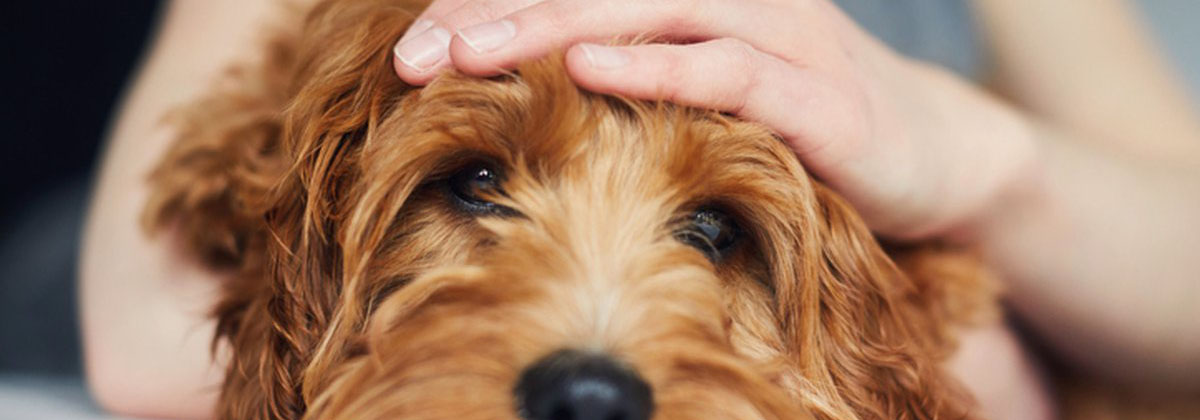27 Jan Dog dandruff! causes and symptoms
Dog Dandruff is common in all creatures and is usually characterised by white flakes on the shoulder or body. Therefore, if you face such a problem with your dog’s body or any change in your dog’s coat appearance, consult a veterinarian or professional groomer immediately. Dandruff in dogs is common among all breeds and is usually accompanied by itching, bad smell and other symptoms.
Dandruff in dogs – causes:
Dandruff can have various causes such as allergies, internal or external parasites, infections, endocrine disorders (hypothyroidism, Cushing’s disease), dietary abnormalities, obesity, and environmental factors such as temperature humidity, skin problems, genetic disorders, etc. Winter, cold and dry weather also make the skin more prone to this disease, and in spring and summer, allergies can cause dandruff in dogs.
Dandruff symptoms:
A few dog dandruff and a small number of flakes are usual and may be due to stress. But if this flakes and dandruff increases, you must think of a solution.
- Many flakes:
Dog dandruff occurs all over the dog’s body. If you see a lot of dandruff or flakes on your dog’s coat, be sure to consult a veterinarian or groomer; because it may be the cause of an infectious disease or a significant skin problem.
- Itching or discomfort:
The amount of itching depends on the cause of dandruff. For example, if dandruff is caused by a skin infection, allergy, certain parasites, or even a rare skin cancer type, it can be very itchy. But dandruff caused by a genetic problem isn’t itchy a lot.
- Redness or awful smell:
If your dog has allergies or skin infections, in addition to flakes, the dog coat may also be red or smelly.
Medical treatment for dandruff in dogs:
Due to the cause of dandruff, there are several solutions to it.
- Allergies:
Environmental or food allergies can cause dandruff. If an allergy causes dandruff in your, you should find the cause in the environment or food. There is a specific medication for environmental allergies, but we usually recommend to change the diet and nutrition. In some cases, there are allergy tests and specific treatment strategies, too.
- Skin infection:
Yeast or bacterial infections, especially those with staphylococci, can cause dandruff and skin infections. Dogs that have allergies or skin problems are also prone to infections. Depending on the disease’s severity, topical antiseptics or oral medications can control and reduce the condition.
- Autoimmune disease:
It is an inflammation of the sebaceous adenitis that can only be detected by sampling skin tissue. In this disease, due to the weakness of the immune system, the sebaceous glands are destroyed. In this case, new skin oils must be replaced. So the treatment of this disease is topical. Of course, sometimes, oral medications can also strengthen the immune system and reduce inflammation.
- Endocrine Disorder:
If the thyroid gland doesn’t produce enough thyroxin, hypothyroidism or cushioning may occur. The disease usually occurs in the part of the dog’s body where an excess steroid is released. Thyroid disease is treated with thyroid hormone supplementation and cushioning by reducing the amount of cortisol or steroid produced in the dog’s body.
Dandruff in dogs, home treatment:
In addition to the medications listed, there are various home remedies for dog dandruff. They can be used in combination with previous treatments or as a prevention of disease.
- Regular grooming:
Cleaning is the easiest way to keep the coat healthy and prevent dandruff. By brushing regularly, spread natural oils on the surface of the coat and massage the skin. Just as not taking a bath causes dandruff in humans, dogs should be washed regularly based on breed.
- Omega 3 fatty acid supplement:
These supplements are in liquid or capsule form, which will help keep his coat healthier and reduce dandruff if added to your dog’s diet. Supplements and vitamins are different for each dog. So it is best to consult a qualified veterinarian or groomer first.
- Humidifier:
Dry air in the house and low humidity can cause dry skin and dandruff. So it is better to use a humidifier in your dog’s sleeping area. Increasing the moisture soothes your dog’s skin and reduces seasonal dandruff.
- Anti-dandruff shampoo or soothing oatmeal shampoo:
The use of these shampoos is very effective in reducing dandruff, relieving itching and moisturising the skin. But make sure that the shampoo is appropriate for dogs and the pH is suitable for their skin. Human shampoo makes their condition and disease worse.
- appropriate diet:
A proper diet with all the nutrients is the best option to control your dog’s dandruff. You can talk to a nutritionist to make sure your dog’s food contains all the essential nutrients, vitamins and minerals. But be aware that if your furry friend is allergic to something, eliminate it from his diet.
Due to the long and dense hair of dogs, dandruff in dogs can be more severe. Identifying dandruff is easy; pay attention to the symptoms mentioned above. Mishka Grooming is by your side to prevent the progression of it with complete grooming.




No Comments